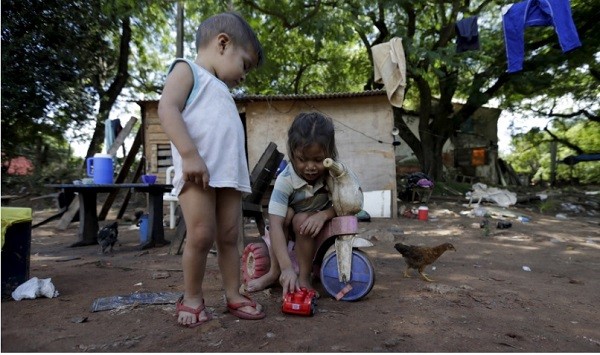According to a new study by University of Southern California, poverty affects the growth of children's brain, The Washington Post reported. Children who live in affluence have bigger brains than children who live in poverty.
The researchers and neuroscientists worked together to record the brain images of 1,099 kids and teens aged between 3 and 20 years. They examined the magnetic resonance imaging scans for three years.
The surface area of the cerebral cortices was measured. The cerebral cortex is the outermost layer of the brain and controls sophisticated cognitive functions such as spatial, language, decision-making and reading skills. According to previous studies, the cerebral cortex can grow as a result of stimulation and experiences. Scientists also conducted cognitive tests.
It was found that the brains of children in families that made less than $25,000 per year had 6 percent less surface area than those in families that earned $150,000 or more. In addition, researchers found that children belonging to the poorest households scored lower on the battery of cognitive tests.
Kimberly Noble, the senior study author, said that brain structure of children differs with income and educational attainment of parents. She further said that scientists cannot say whether poverty leads to smaller brain structures or not.
Two theories have come up about why children who live in poverty have smaller brains. One theory is that low-income families lack access to material goods that support healthy development such as higher quality health care and good nutrition. The other theory is that low-income families tend to lead chaotic lives, and that stress could be playing a role in preventing growth of brain in children.
According to the University of Wisconsin-Madison News, stress may delay growth and development of brain in early years.



























